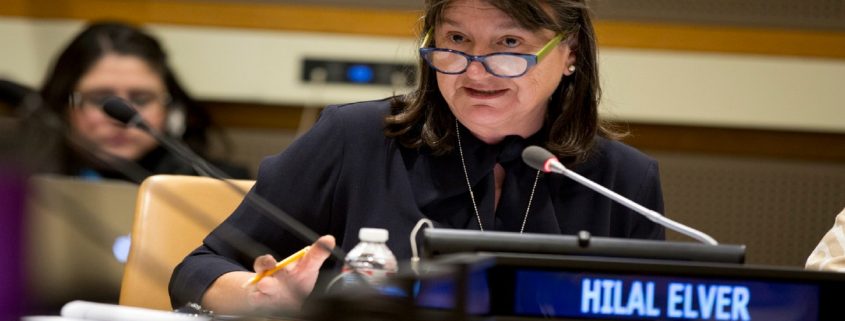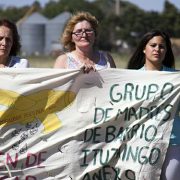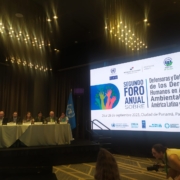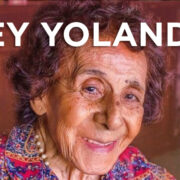Preliminary observations of the Special Rapporteur on the Law to food
In the period that extended from September 12 to 21 of this year, our country had the visit of the Special Rapporteur of the United Nations, Hilal Elver, with the objective of evaluating the realization of the right to food in the country, to subsequently submit a final report to the United Nations Human Rights Council in 2019.
“Below, we offer a google translate version of the original article in Spanish. This translation may not be accurate but serves as a general presentation of the article. For more accurate information, please switch to the Spanish version of the website. In addition, feel free to directly contact in English the person mentioned at the bottom of this article with regards to this topic”.
The rapporteur, in her preliminary observations, emphasized:
- Current crisis and its impact on the right to food: The Argentina faces a situation of economic and financial crisis, with
great impact on the right to food of the population. In this At the moment, Argentina must use the maximum of its resources available to ensure the full realization of rights humans. - Interrelation of the right to food with other rights human rights: All human rights are interrelated, and the right to food can not be achieved without the right to a adequate housing, education, health for all and all included migrants, indigenous peoples, peasants, children and adults greater.
- Reception of the right to food in the order Argentine legal system: Argentina, as a State party to the Pact International of Economic, Social and Cultural Rights, has the obligation to respect, protect and guarantee the right to feeding. It is also part of other international treaties fundamental principles on human rights, and they all include provisions related to the right to food adequate There is no explicit constitutional protection of the right to food at the national level and, therefore, the issues related to the right to food so integral and multidimensional. For all these reasons, it highlights the need for comprehensive framework law, with guidelines to promote and implement this right that includes food sovereignty for all.
- Lack of update on statistical data: Argentina does not has up-to-date official data and other statistical materials that can provide reliable data on hunger and poverty in the last almost 10 years. The latest survey on food and nutrition habits was carried out in 2004-2005, and the latest survey of agricultural sector in 2002, which is not acceptable from the point of view to understand the needs and limitations of related policies with food security.
- Food consumption in Argentina and its relationship with NCDs: El consumption in the country of fruit and vegetables is low, with only 6% of the population that consumes the amount of fruits and vegetables recommended by the WHO Food Guide. It is the country of the region that consumes the largest number of ultra-processed products and leads the consumption of soda The country includes the highest rates of obesity between children and adults. Currently, 40% of the children and adolescents and 60% of adults are overweight, and 7.3% of Children under the age of five are obese, it is the most important Elevated Childhood Obesity in Latin America It is crucial that nutrition policies are comprehensive, address all forms of malnutrition and have adequate financial support.
- Marketing and regulation techniques. Although Argentina has with regulations on the content of advertising, have not been applied in an effective way to address the problems of obesity and poor nutrition. There are no specific rules in relation with advertising of food and drinks addressed to children, nor restrictions in relation to nutritional criteria.
- Breastfeeding and marketing of milk formulas: the rapporteur mentions misleading advertising and growing concern about the health impacts of breast milk substitutes. Insists in the control of advertising and the implementation of strategies for promote and encourage breastfeeding, particularly during the first six months of life.
- Family Farming: To achieve the objective of a diet adequate and healthy, considers it necessary to strengthen the family farming programs to support and protect this sector of crucial importance. Efforts should be made to promote family farming as a priority. It is the only way to achieve a balance between current industrial agriculture and the development of agroecological production systems. The achievement of this balance would be the only way to achieve a sustainable and just solution for the Argentine people.
- School Dining Rooms: The current economic crisis seems to have a negative impact on the quality of the food in the different school canteens for the increase in prices. These dining rooms are essential for children and should be strengthened further to ensure they have access to a adequate nutrition and food.
- Social Programs: Your concern is based on the fact that some of the social benefits exclude certain marginalized groups and disadvantaged and that these programs are not sufficient for the changing economic context.
- Environment: Suggests that a law or program be implemented to reduce the use of pesticides in agricultural production. In relation to the Protection of Forests, the Organization of the United Nations for Agriculture and Food ranked Argentina among the countries that had lost more forests between 2010 and 2015. Warns that deforestation continues in areas where it is prohibited, and that the national government has shown a lack of interest considerable in applying the law, which is reflected in the lack of funds necessary to finance conservation policies.
- Use of Pesticides and Breastfeeding: The widespread use of pesticides with such frequency and intensity has generated concern regarding the exposure of women of reproductive age and of pregnant women who, in turn, can expose children to through breastfeeding. The National Institute of Industrial Technology (INTI) conducted a study of mothers who gave birth in hospitals of the metropolitan area of Buenos Aires. The study determined that milk of these mothers contained levels of pesticides that were 15% more higher than the levels considered safe by law.
More information:
Author
Andrea Melissa Hill
Contact:
Agustina Mozzoni, agustinamozzoni@fundeps.org











